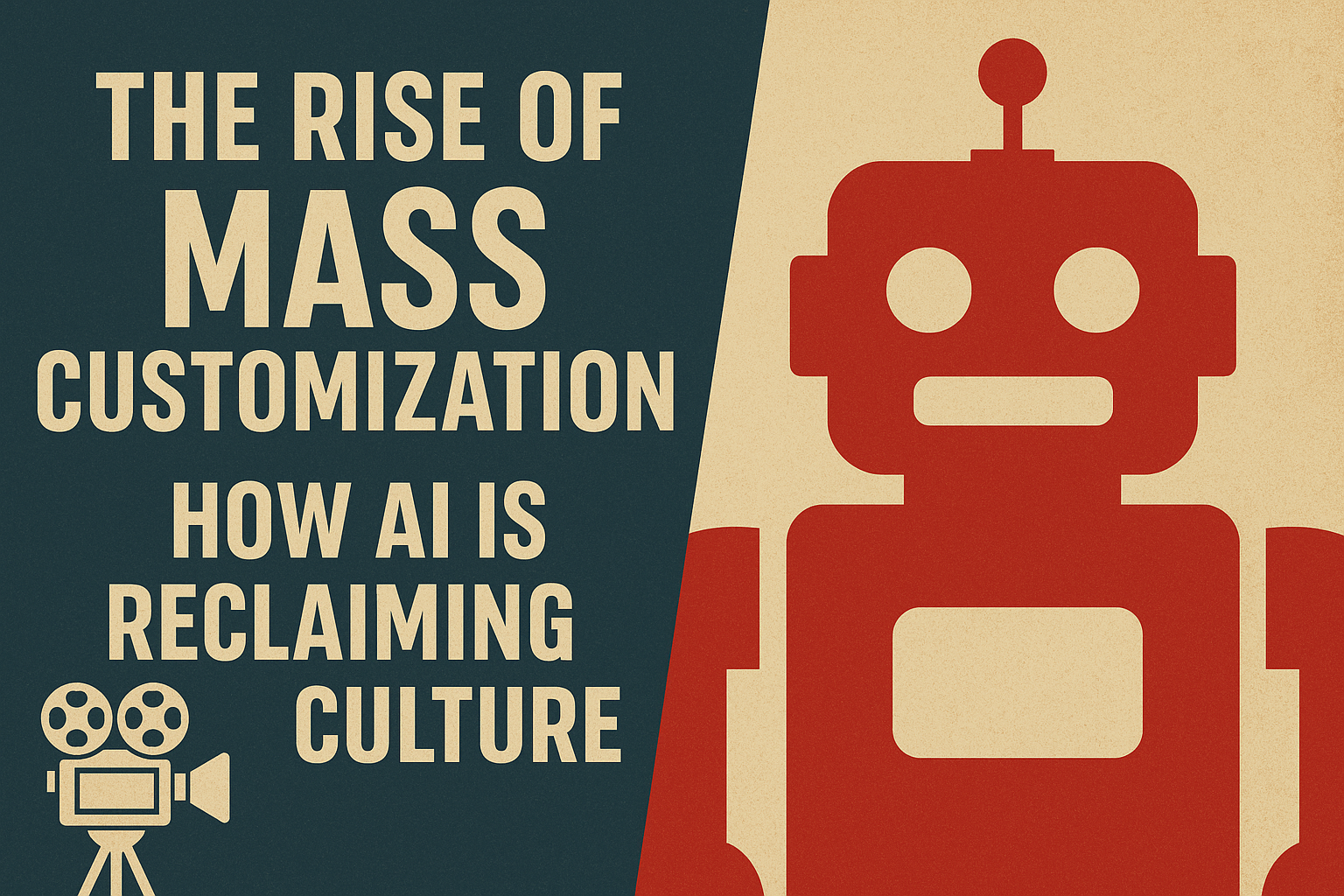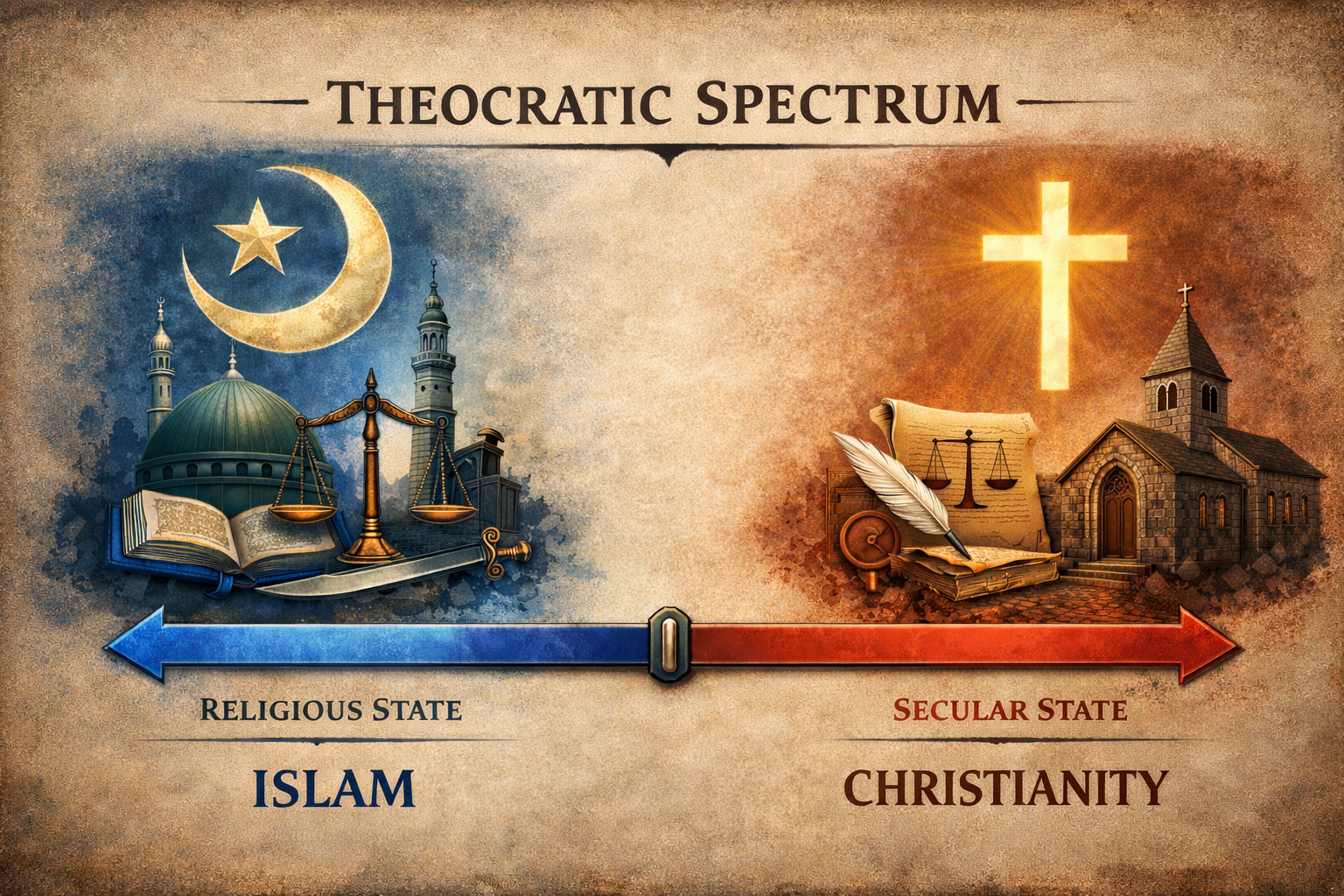Once upon a time, if you wanted to speak to the world, you had to kneel before the gatekeepers. Studios in Hollywood. Publishers in New York. Record labels in L.A. If your story didn’t fit their script — if your values didn’t match their agenda — you were shut out. Silenced. Forgotten.
But that chokehold is slipping.
Thanks to artificial intelligence and the crumbling economics of old media, we are entering a new golden age of mass customization — not just of products, but of stories. Not propaganda from above, but narratives from below. Stories told not with a $50 million megaphone, but with a $500 microphone, a home studio, and an idea worth spreading.
And for those who believe in liberty, in individual thought, and in speech free from corporate orthodoxy — that’s a revolution worth cheering.
The Tyranny of Scale
For most of the 20th century, culture was produced the same way cars were: on an assembly line. Cost dictated conformity. You couldn’t afford to make a movie unless you knew it would appeal to everyone. So scripts were sanded down, values watered down, and heroes reprogrammed. Instead of art, we got product. Instead of truth, we got market-tested mush.
It wasn’t just inefficient. It was tyrannical.
Only the loudest voices — usually the most ideologically compliant ones — could afford to be heard. If you believed in faith, family, or nation, you were lucky to see those values portrayed respectfully on screen even once a decade. The economics simply didn’t allow it.
Until now.
AI Flips the Formula
Enter artificial intelligence — not as the boogeyman of tech dystopias, but as a tool of liberation. A friend recently shared with me his work creating AI-generated video trailers for books — once the exclusive domain of major publishing houses with bloated marketing budgets. Now, a solo experienced video editor with a good computer, a knowledge of video storyboarding, and a few prompts can launch a compelling book trailer business in a matter of hours.
That’s not just neat. That’s paradigm-shifting.
We used to live in a world where you needed one movie to make $50 million in its opening weekend to be called a success. Now? We can have 50 movies that each make $1 million — with far lower production costs and no reliance on focus groups or censors. It’s not about reaching everyone. It’s about reaching the right ones — deeply and directly.
That’s freedom of speech in action. Not just the right to speak, but the power to be heard — without asking for permission.
From Mass Production to Mass Customization
Back in the ’80s, futurists used to talk about a concept called “mass customization.” The dream was to deliver tailored experiences to millions, rather than the same generic product to everyone. But the tech wasn’t ready.
Now it is.
AI tools can adapt tone, style, visuals, and voice — on command. A conservative author can release a patriotic thriller with a trailer that looks like The Hunt for Red October meets Mr. Smith Goes to Washington. A Christian musician can produce a worship video with the production quality of a Hillsong album, without begging a record label for distribution. A mother who homeschools her kids can turn her teaching curriculum into animated stories. A veteran can turn his life story into a graphic novel — with voice acting and background scores.
All without asking the elites for anything.
Cultural Independence Is the New Frontier
Let’s be clear: this isn’t just about art. It’s about cultural sovereignty.
Every time we use AI to tell our own stories, we strike a blow against central planning — not in economics, but in entertainment. The same forces that tried to standardize our values, sterilize our traditions, and sell us postmodernism wrapped in capes and explosions are suddenly scrambling. They can’t compete with 1,000 little creators telling authentic stories to real audiences.
What we’re witnessing is the decentralization of culture, and it terrifies the centralized class. Because for the first time in a century, Americans can tell their own stories again — unedited, unfiltered, and unafraid.
Conclusion: The Republic of Creators
The American experiment was always about more than borders and ballots. It was about voices — millions of them — freely speaking, freely trading, freely thinking. We’ve let that freedom slip too far into the hands of monopolists and ideologues. But thanks to the tools now in our hands, we can take it back.
We don’t need another Marvel sequel to define our values. We need 50 small films that show what family, courage, and patriotism really look like. We don’t need another soulless pop album engineered by AI in Silicon Valley — we need AI tools that let real Americans make real music.
Mass customization isn’t just an economic breakthrough. It’s a cultural jailbreak.
And the inmates? They’re artists. Authors. Patriots. You. Me.
The studio system is falling. The People’s Studio is rising.
It’s about time.



